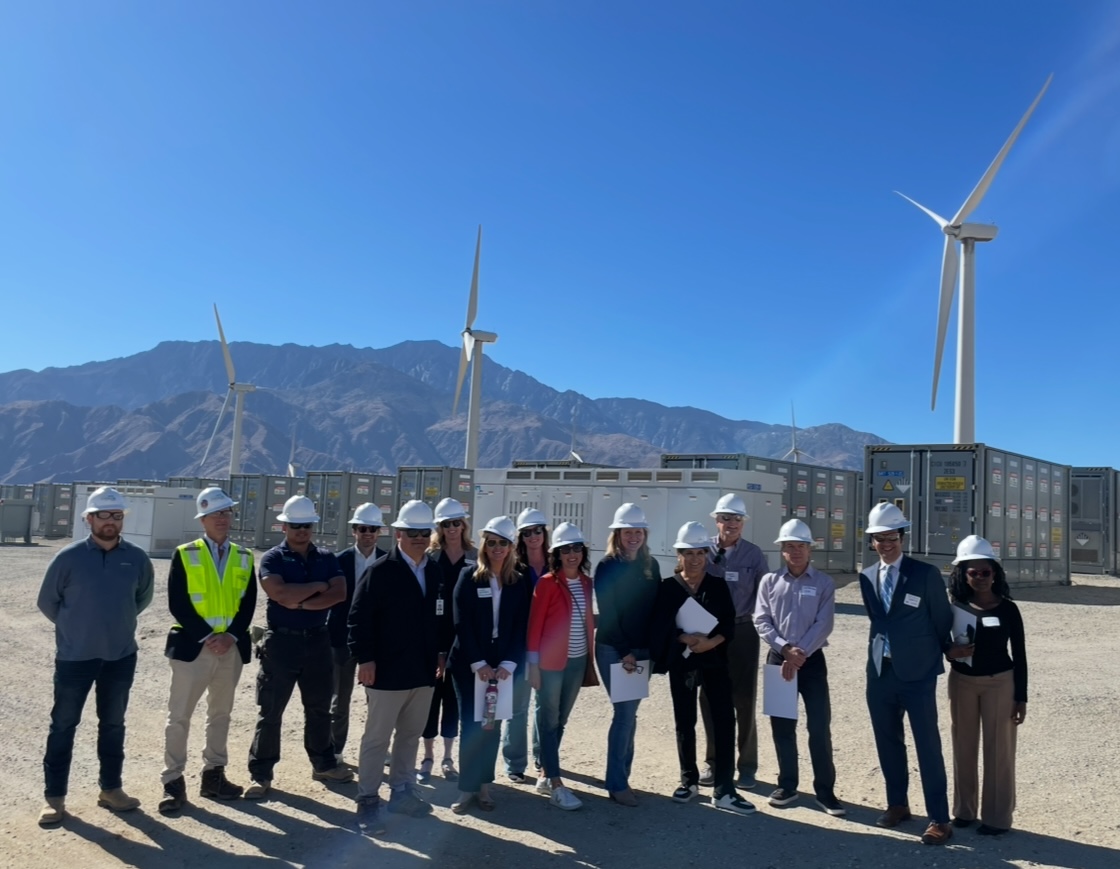- Erin Ivie
- Director of Communications, Office of Assemblymember Buffy Wicks
- 510-619-8495
- erin.ivie@asm.ca.gov

PALM DESERT, CA – The Assembly Select Committee on Permitting Reform, chaired by Assemblymember Buffy Wicks (D-Oakland), convened a hearing and tour today to address the barriers posed by California’s outdated permitting processes to clean energy infrastructure development. The event brought together state legislators, energy experts, environmental justice advocates and industry leaders, highlighting the critical need to streamline permitting to meet California’s ambitious 2045 net-zero goals.
“California cannot achieve its clean energy targets with the status quo. Outdated permitting processes are stalling the very projects we need to meet our climate goals,” said Assemblymember Buffy Wicks. “We must act now to modernize our system, remove unnecessary roadblocks, and accelerate the clean energy transition.”
The day began with a tour of the Desert Peak Project, a state-of-the-art battery energy storage facility developed by NextEra Energy Resources in Palm Springs. As one of the world’s largest battery storage sites, Desert Peak has a capacity of 700 MW, providing critical grid stability by storing renewable energy and delivering it during peak demand. Representatives from NextEra Energy highlighted the challenges developers face due to permitting delays and emphasized to attending lawmakers the need for reforms to support clean energy infrastructure.
"We are grateful to the California legislative leaders who visited our Desert Peak Energy Center to learn what it takes to permit, develop and safely operate renewable energy facilities, which are critical for achieving the state's environmental goals,” said Pedro Villegas, Executive Director of Regulatory and Political Affairs for NextEra Energy Resources.
During the subsequent hearing, panelists discussed the roadblocks to clean energy infrastructure and proposed solutions for streamlining permitting to support the state’s climate goals. The first panel focused on the barriers to building new electricity transmission infrastructure needed to deliver renewable energy from generation sites to population centers, emphasizing the need for a more efficient permitting framework to expand transmission capacity and avoid energy shortfalls.
The second panel examined the challenges of permitting clean energy generation projects, including solar, wind and battery storage. Panelists spoke to the importance of reliable and predictable timelines for project approvals to attract investment and scale renewable energy solutions.
“Several jurisdictions across California have imposed battery energy storage system (BESS) moratoriums, in some cases for up to two years, as they work to update their zoning codes and regulations,” said Scott Murtishaw, Executive Director of California Energy Storage Alliance (CESA). “The proliferation of moratoriums threatens our ability to deploy enough energy storage to continue progress on our greenhouse gas reduction goals while maintaining reliable service, particularly in light of growing electricity demand for the electrification of buildings and vehicles.”
The final panel addressed the intersection of permitting reform and environmental justice. Advocates emphasized the importance of equitable access to clean energy benefits and ensuring that disadvantaged communities have a voice in the development process. They also stressed the need for reforms that prioritize community input while balancing project timelines.
The hearing underscored the broad consensus among policymakers, industry leaders, experts and advocates on the urgent need to modernize California’s permitting system to meet its clean energy and climate resilience goals.
“The message today was clear: permitting reform is essential to delivering the clean energy infrastructure Californians need and deserve,” said Assemblymember Wicks. “We cannot afford to let unnecessary delays stand in the way of a sustainable future. The time to act is now.”
This tour and hearing are part of the Select Committee’s broader effort to explore permitting reform across key sectors, including housing, transportation and climate resilience. In collaboration with the Bay Area Council Economic Institute, the Committee is conducting a comprehensive study on the cost of inaction and impact of permitting delays on critical projects.
# # #
________________________________________
About Assemblymember Buffy Wicks:
Assemblymember Buffy Wicks represents California’s 14th Assembly District, which includes all or portions of the cities of Oakland, Richmond, Berkeley, Albany, El Cerrito, San Pablo, Pinole, El Sobrante, Hercules, Rodeo, Kensington, and Piedmont. You can learn more about Assemblymember Wicks at http://a14.asmdc.org.
About the Select Committee on Permitting Reform:
The Select Committee on Permitting Reform is dedicated to addressing and resolving California’s systemic permitting issues. By fostering bipartisan collaboration and engaging diverse stakeholders, the Committee aims to streamline regulatory frameworks to support the state's goals in housing, clean energy and climate resilience. Through these efforts, the Committee seeks to create a more efficient and equitable system that facilitates the development of critical projects while preserving the health of our environment and the well-being of California's residents.